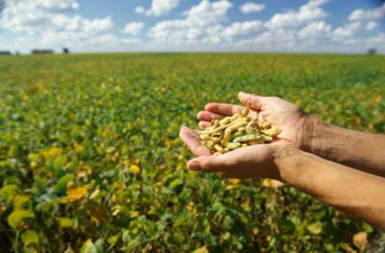"The Kingdom of Heaven is like..."
How often we have heard this introduction; how often we have heard the words of Jesus? He teaches in parables, bringing home through common yet vivid images the unfolding Truth about the mystery of God and our relationship with Him. Jesus uses many images in his parables: images of the ordinary, of size, of mystery, of contrast. And He tells us clearly that we should expect growth and change. We should be open to welcome all without condition or exception. He never said that it would be an easy task. In fact, He showed us by example just how difficult and "uncomfortable" it could sometimes be.
 The Kingdom of God is a living thing constantly growing, expanding and welcoming all kinds of people. Most of us have experienced the truths of the Kingdom in the parish in which we have grown up. Many of us have experienced change and growth - not in doctrine but in form and ritual. We have also experienced the struggle and the pain of growth. We sometimes find change uncomfortable, disillusioning and fearsome. We can sometimes be overcome by the evil that surrounds us in this world. And it is always tempting to avoid this struggle by retreating into our own safe, secure and like-minded communities.
The Kingdom of God is a living thing constantly growing, expanding and welcoming all kinds of people. Most of us have experienced the truths of the Kingdom in the parish in which we have grown up. Many of us have experienced change and growth - not in doctrine but in form and ritual. We have also experienced the struggle and the pain of growth. We sometimes find change uncomfortable, disillusioning and fearsome. We can sometimes be overcome by the evil that surrounds us in this world. And it is always tempting to avoid this struggle by retreating into our own safe, secure and like-minded communities.
But it is important for us to understand that the Kingdom of God is not about separating ourselves from everything the world throws in front of us. It's about dealing with evil, and living our lives alongside it, in the middle of it and in spite of it. Jesus tells us in the parable of the sower that evil is ultimately destructive, and that the final stage of the kingdom is when all that is evil is rooted out and destroyed. But that is his work. It's not so important for us to worry about how that will happen or unfold. What is important is that we always choose to live in the way God has called us to live - to be in this kingdom and to try to be fruitful.
But for growth to occur, there must be continuity and integrity. Therefore we must be the link. We must be those who welcome, those who tell the unchanging story of Jesus and the Gospel, those who model the unconditional love of Jesus to our children and to all. The seeds of faith that we sow, the touch of Christ that only we can bring will ensure the fulfillment of the Kingdom. We must be the yeast, the leaven of God's Word to the world. We must be the healers, the reconcilers, the peacemakers.
The lesson that Jesus teaches is simple but inescapable: the presence and the love of our God is something very near. We feel it and are touched by it in the ordinary events, people and places of every day. These may not often be the kind where we would rather meet our God. He is often uncomfortably near us in situations and persons where we would prefer not to see Him, or in voices that we would prefer not to hear. But that is precisely the challenge of the authentic love of God. We are challenged to be Christ for others and to reflect the nearness of the Kingdom.
The Kingdom of Heaven is like nothing we would expect. It is as close to us as our dearest friend, or our worst enemy. It touches us in our greatest joys and in our deepest sorrow. And it is never farther away than our next breath, or sigh, or tear, or burst of laughter.





